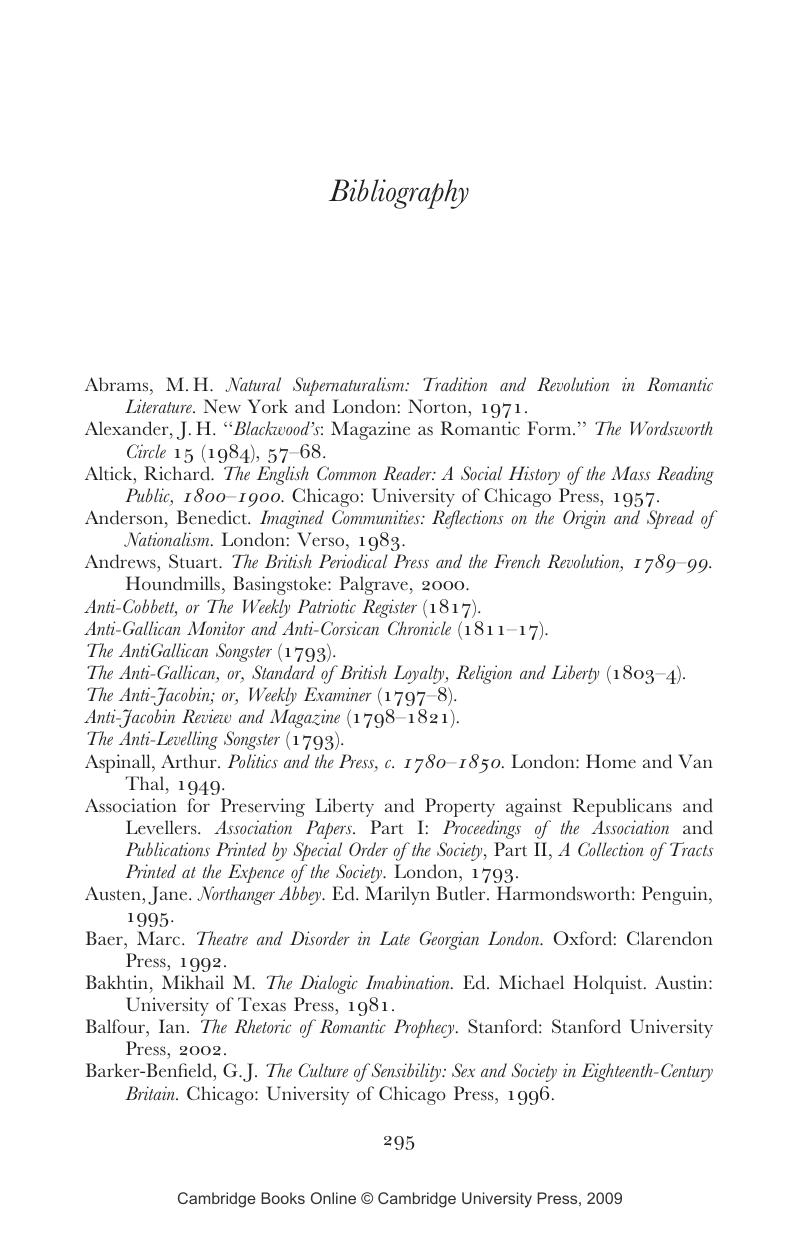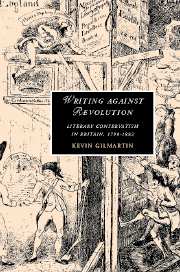Book contents
- Frontmatter
- Contents
- Illustrations
- Acknowledgments
- List of abbreviations
- Introduction: Reconsidering counterrevolutionary expression
- 1 In the theater of counterrevolution: loyalist association and vernacular address
- 2 “Study to be quiet”: Hannah More and counterrevolutionary moral reform
- 3 Reviewing subversion: the function of criticism at the present crisis
- 4 Subverting fictions: the counterrevolutionary form of the novel
- 5 Southey, Coleridge, and the end of anti-Jacobinism in Britain
- Notes
- Bibliography
- Index
- CAMBRIDGE STUDIES IN ROMANTICISM
- References
Bibliography
Published online by Cambridge University Press: 22 September 2009
- Frontmatter
- Contents
- Illustrations
- Acknowledgments
- List of abbreviations
- Introduction: Reconsidering counterrevolutionary expression
- 1 In the theater of counterrevolution: loyalist association and vernacular address
- 2 “Study to be quiet”: Hannah More and counterrevolutionary moral reform
- 3 Reviewing subversion: the function of criticism at the present crisis
- 4 Subverting fictions: the counterrevolutionary form of the novel
- 5 Southey, Coleridge, and the end of anti-Jacobinism in Britain
- Notes
- Bibliography
- Index
- CAMBRIDGE STUDIES IN ROMANTICISM
- References
Summary

- Type
- Chapter
- Information
- Writing against RevolutionLiterary Conservatism in Britain, 1790–1832, pp. 295 - 310Publisher: Cambridge University PressPrint publication year: 2007



